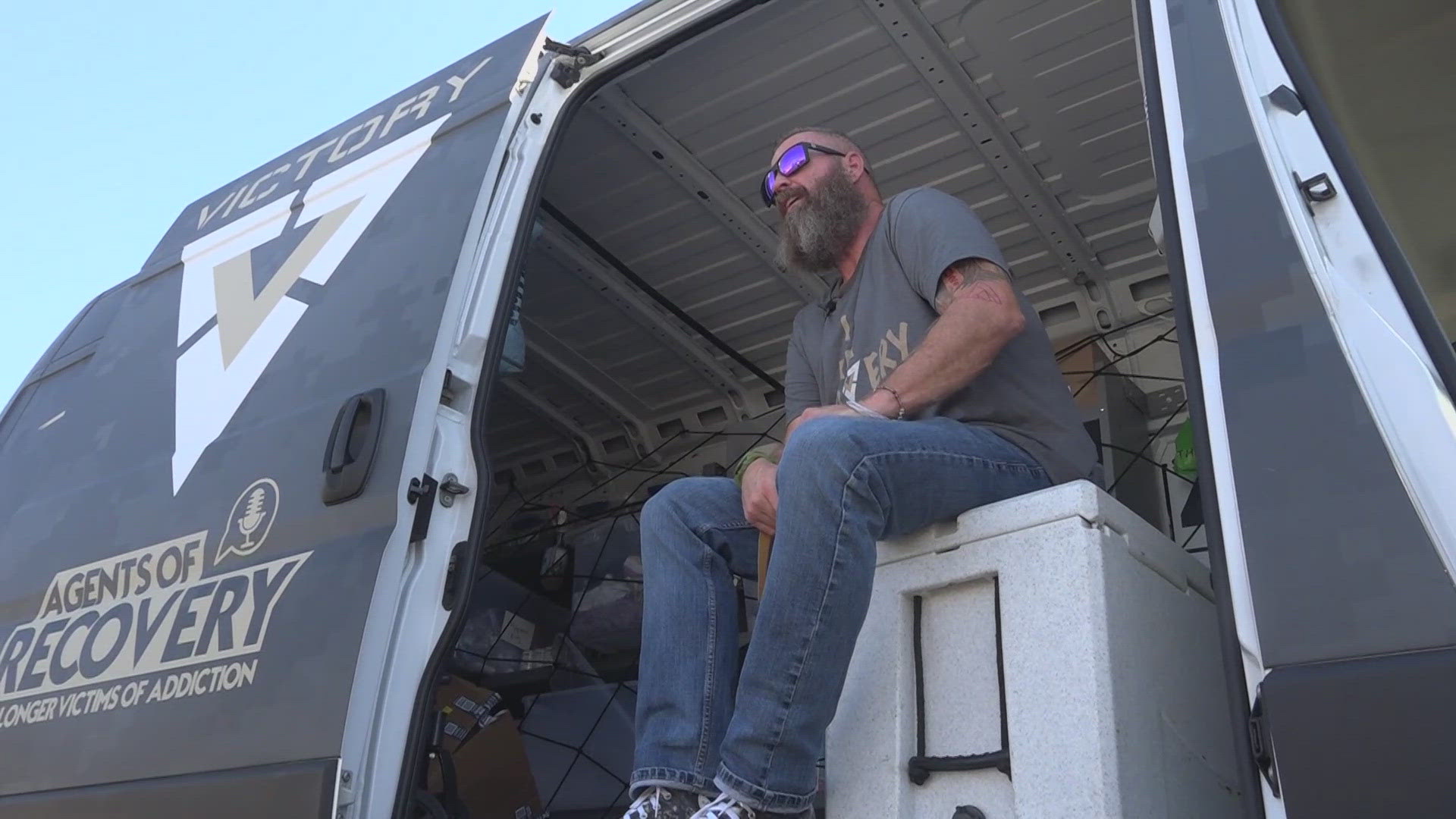PHOENIX — There’s been a shift in the fentanyl supply in Arizona, a drug that’s risen in prevalence in the last five years.
Now, law enforcement, those using the drug, and those helping people in addiction all say they’ve seen a decrease in fentanyl pills’ potency and more fentanyl powder on the streets.
"It's in front of you, and you're seeing people doing (fentanyl) right in front of you," Brock Bevell said. "It's not like old school, old school users, we would, we wouldn't use in front of people."
Bevell is a former Mesa police officer who became addicted to drugs after he was injured in the line of duty. He’s now been sober for more than a decade, and founded and runs the non-profit, The Fentanyl Project Arizona.
“My goal was to help people on the streets to get them to the next level of care, which that could mean detox," Bevell said. "It could be a 30 day program."
Among those he’s met is a man named Steffon, who’s been addicted to fentanyl for six years.
“I lost my little brother last year to an overdose, and I miss him every day,” Steffon said.
Now, Steffon is on methadone for treatment.
“The day I went in, they helped me out, they got me dosed,” Steffon said. “And I think that was the first day I felt like I didn’t actually need to slave for the blue pill.”
Steffon said the fentanyl pills on the street aren’t as potent as they used to be — which is something Bevell said he’s heard from others he’s encountered through his outreach too.
“The pills are very bad now, and that's also pushing to do the powder now, which, with the powder, it's a whole lot more expensive, and it's also a hit and miss,” Steffon said. “You might get some good stuff, or most of it, from what I hear, is pretty terrible, just like the pills.”
This leaves some addicted to fentanyl with a choice to make.
“I actually hear a lot of them talking, starting to chirp about coming to methadone or saying, ‘Oh it’s time to stop’,” Steffon said.
Bevell said he’s had a couple decide to get off of fentanyl because of the shift.
“That’s the opposite side, which is kind of cool, is a lot of people are like, ‘Hey, I’m scared of the fetty (fentanyl) powder, so it’s kind of helping me slowly detox.’,” Bevell said.
The Phoenix Police Department has noticed the trend towards more powder.
Commander Steve Martos of the department’s Drug Enforcement Bureau said there's been an increase in fentanyl powder over the past two years. He's also found there's a decrease in potency in some fentanyl pills they’ve seized.
Martos said sometimes the powder is coming in already mixed with other chemicals or precursors, while others are coming in at full strength.
“When it's coming in that way, that makes it a lot more dangerous for our community, because now we can have some individuals here in the US who are going to try to mill these pills with fentanyl," Martos said. "We don't know how they're going to mix it, how much fentanyl they're going to put in each pill."
More than 2,700 non-fatal overdoses have been reported to and verified by the Arizona Department of Health Services so far this year.
But Bevell said he believes the overdose statistics are an undercount.
“When these individuals use Narcan on each other, they don't report it as a stat. So we have to be really careful listening to these stats and saying, ‘Hey, it's the potency is going down. We're not seeing as much,’” Bevell said. “It's just shifted. And so these individuals understand how to save each other now.”
Five years ago in 2019, fentanyl was involved in two out of 10 non-fatal overdoses in Arizona. Now, seven out of every ten non-fatal overdoses involve fentanyl.
“It’s sad to say — I do not see that going away anytime soon because of the profit margin that the cartels are making,” Martos said.
Experts say the way forward to reduce deaths is not just a single fix, but a multi-pronged approach to address supply, demand and harm reduction.
“There's a lot to be done, not just here in our country from a demand standpoint, but more so from a supply standpoint,” Martos said.

